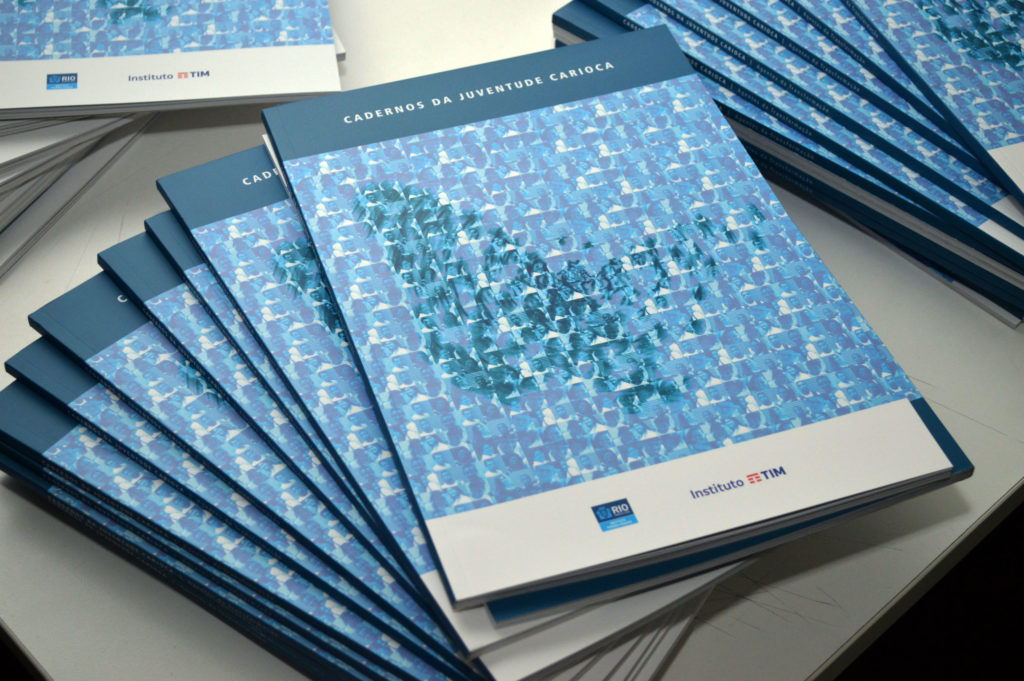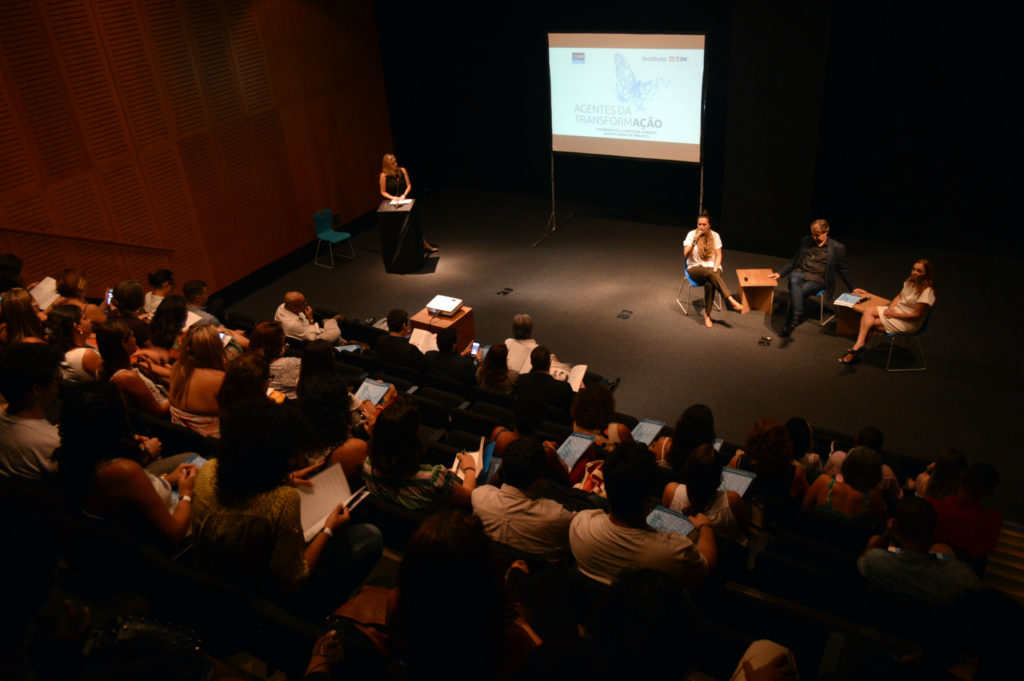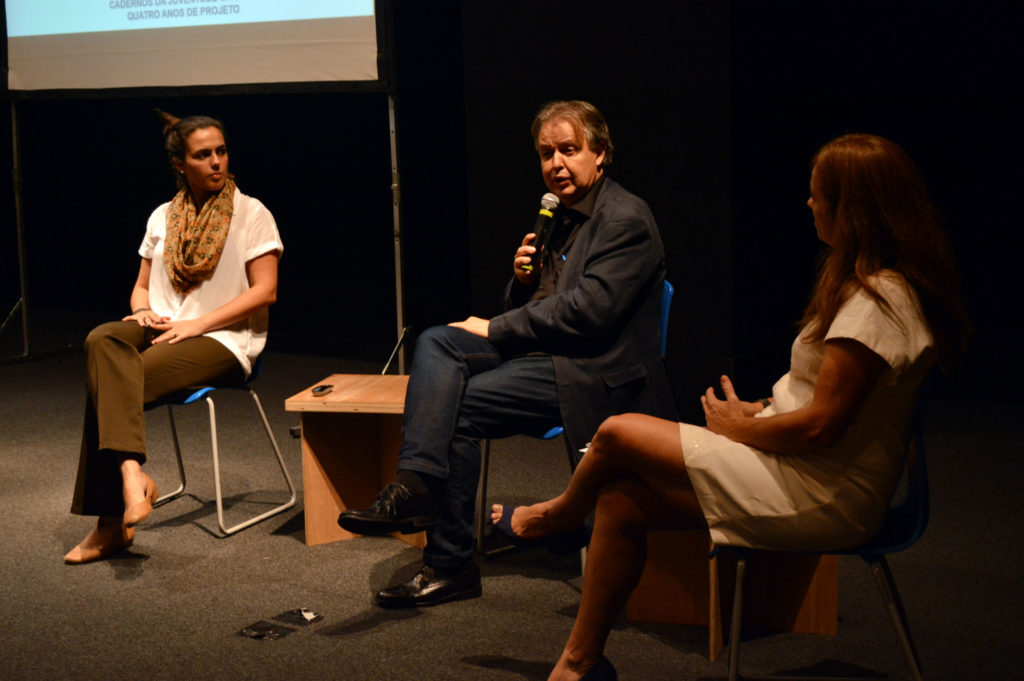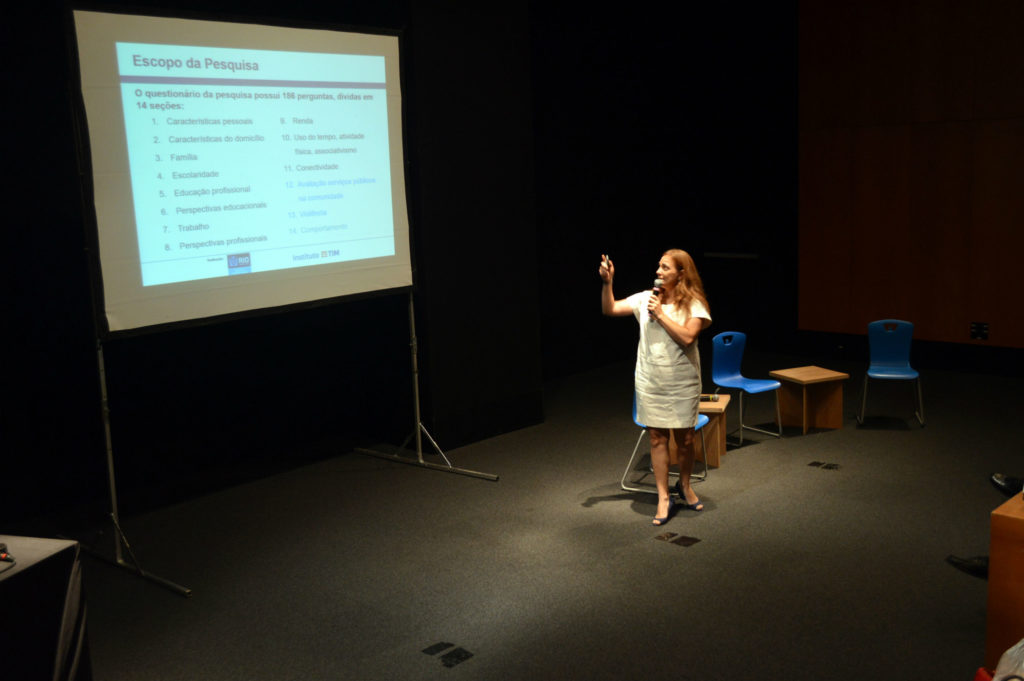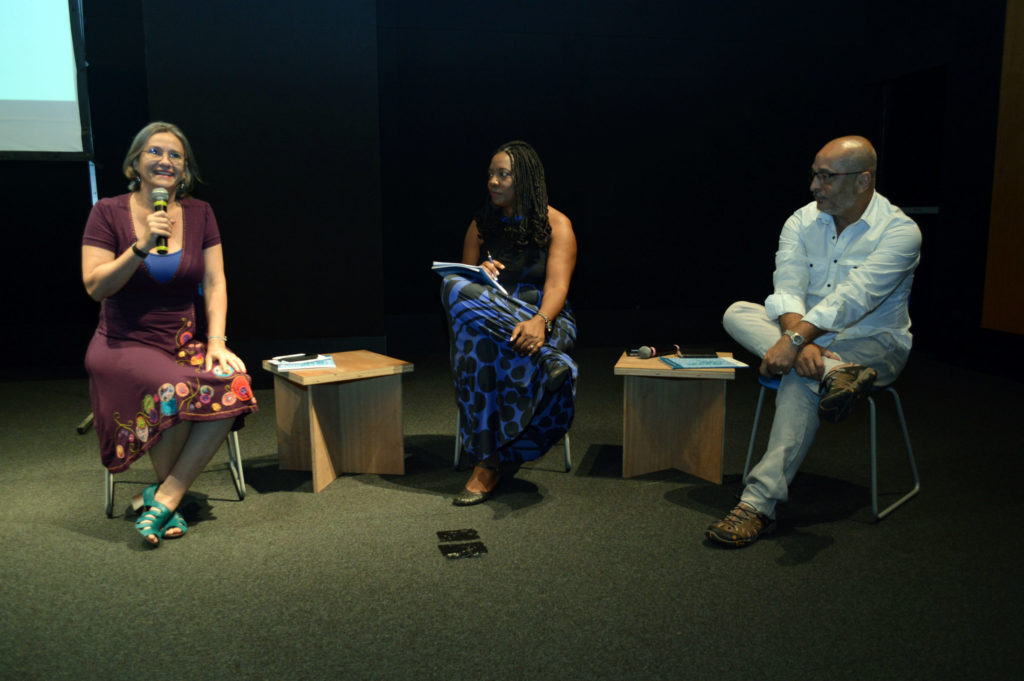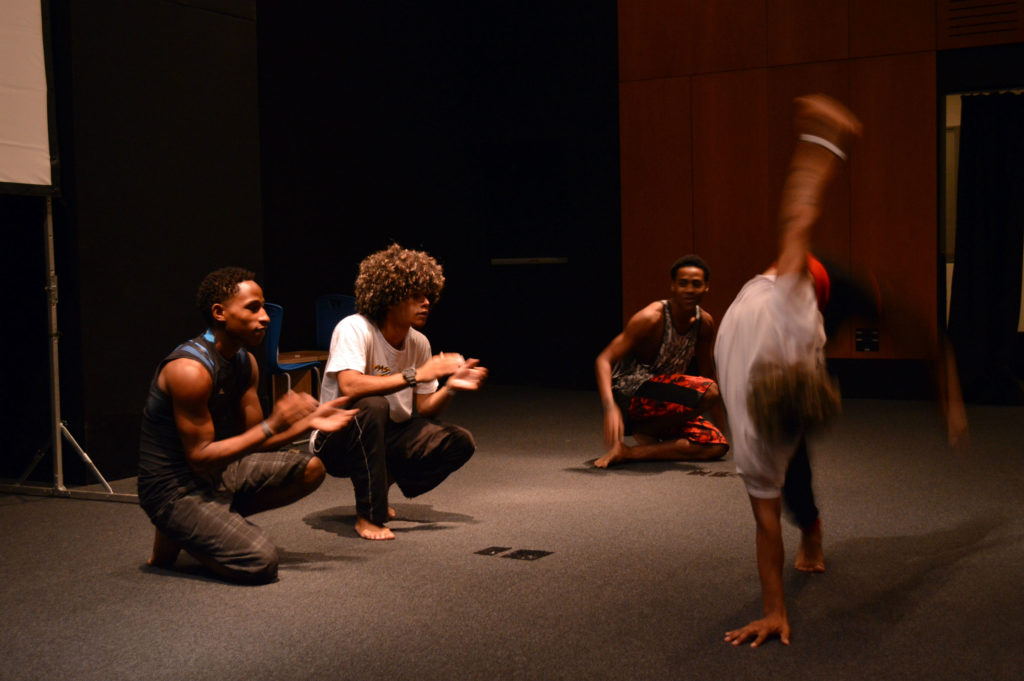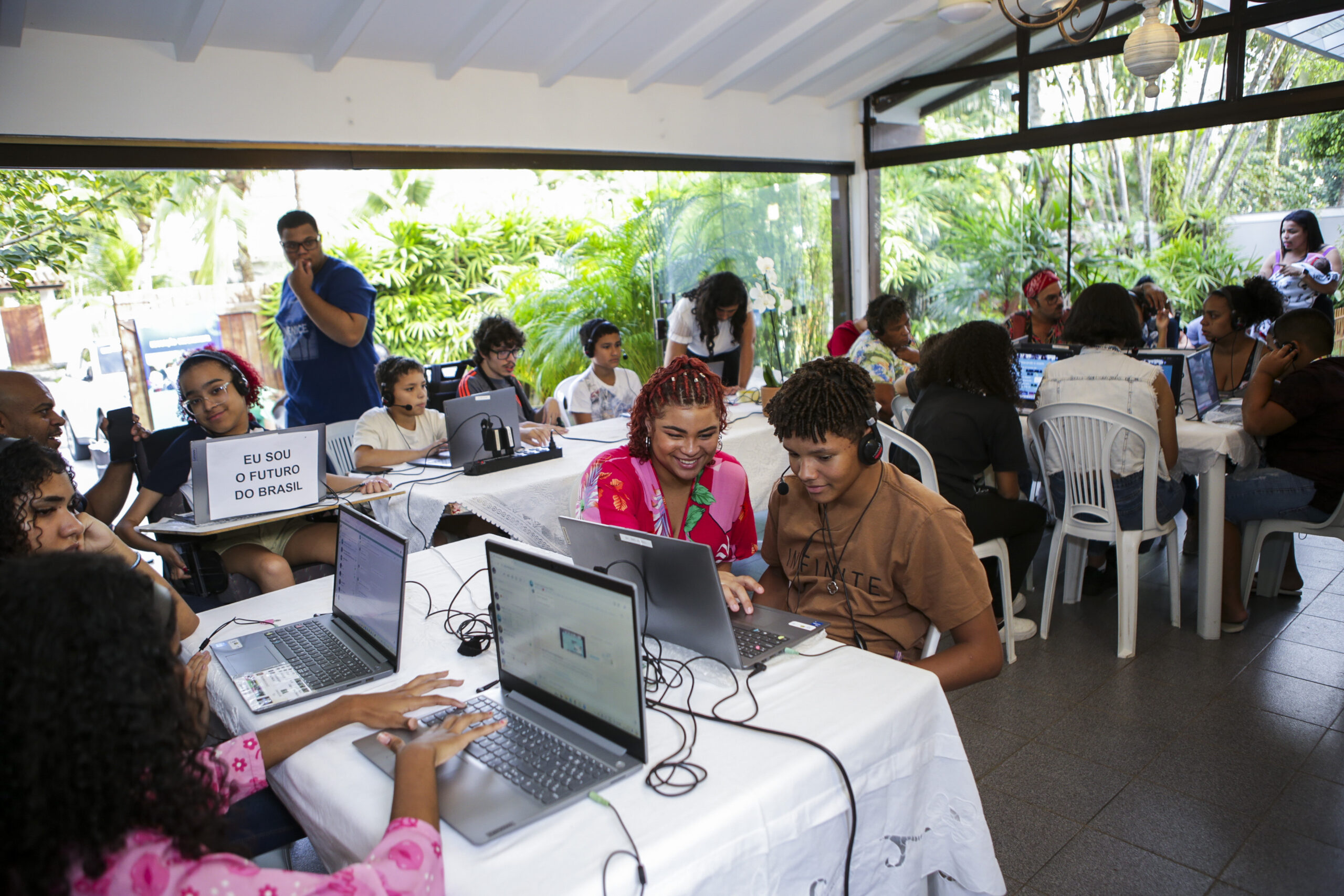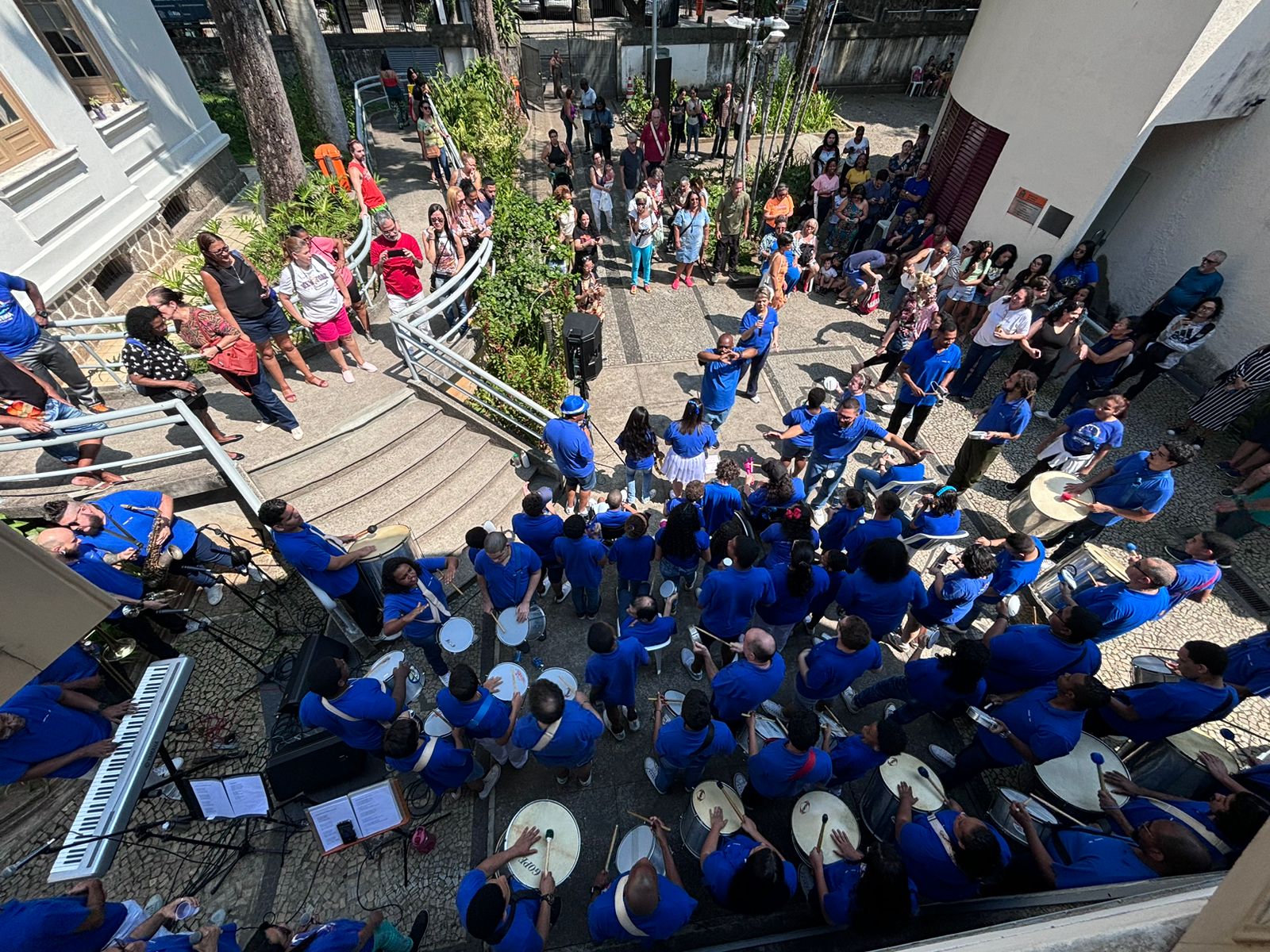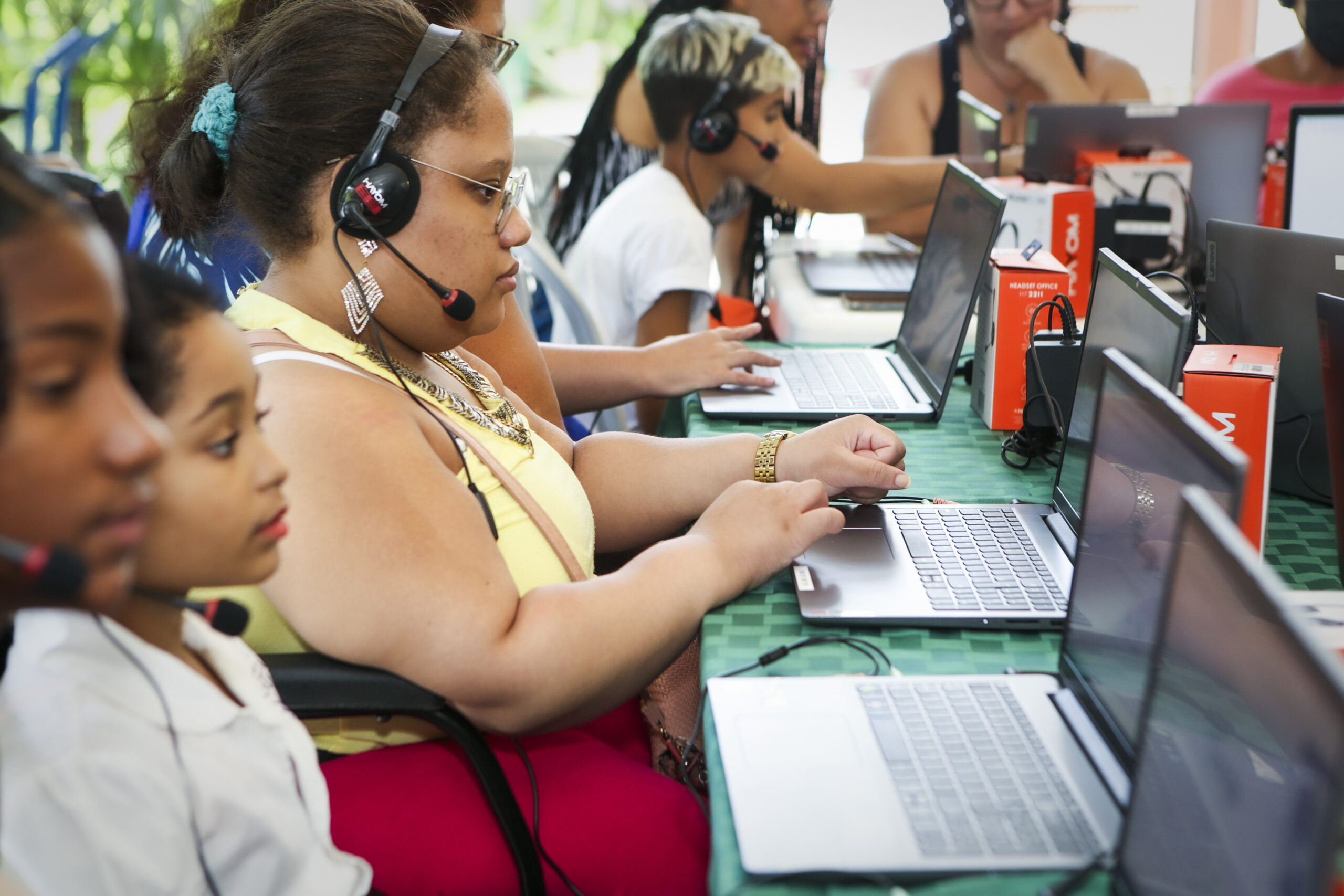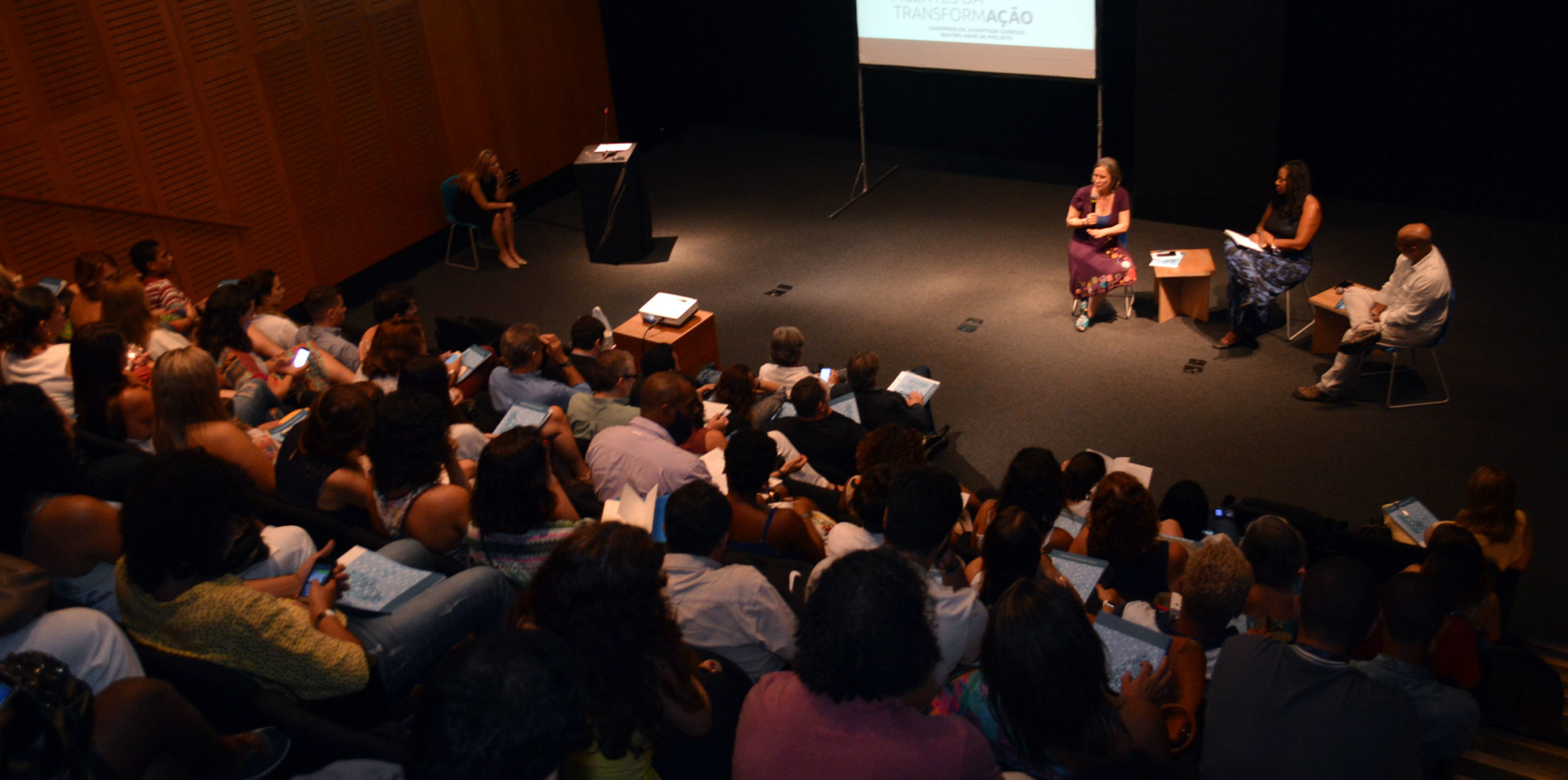
After 4 years of research with young people of communities with UPPs from Rio de Janeiro (RJ), the project Agentes da Transformação carried out the launch of Cadernos da Juventude Carioca (Rio de Janeiro Youth Workbooks). The publication gathers the main data of the surveys conducted between 2013 and 2016 by the project, performed in partnership between Instituto TIM and Instituto Pereira Passos (IPP). The launch of Cadernos took place at the Art Museum of Rio (MAR) and had the participation of around 100 guests, among representatives of municipal departments and IPP, coordinators and young scholars who participated in the project and interested people.
The event opening was carried out by the IPP president, Mauro Osorio; the director of Special Projects of IPP and coordinator of Agentes da Transformação, Andrea Pulici; and the representative of Instituto TIM Anna Carolina Meireles. They remarked that the publication is the closing of the 4 years of work of the project and thanked for the partnership among Instituto TIM, IPP and the United Nations Children’s Fund (UNICEF). In total, 340 young scholars, guided by 34 coordinators, made more than 17,000 interviews in 40 communities.
Andrea made a presentation about Cadernos, which are divided in 4 blocks: Identity (gender and color); Education, work and family; Lifestyle (routine, behavior and violence); and Youth in Degase. This last one is the result of a research performed by IPP and UNICEF, supported by Paulo Freire Social and Educational Management School, with young people serving correctional measures of internment in units of the General Department of Correctional Actions (Novo Degase). The research methodology was adapted from the methodology used in Agentes da Transformação, aiming to analyze and compare the profiles of young people interned and young people living in communities.
Then, 3 guests were called to the stage to talk about the importance of Cadernos and of the several possibilities to use the data collected: Cristiane Santana, sub-secretary of Human Rights of the Municipal Department of Social Development of Rio de Janeiro; Luciana Phebo, coordinator of the UNICEF office in Rio de Janeiro; and Jailson de Souza e Silva, from the organization Observatório de Favelas. “This initiative bets on so many things, people and forms that UNICEF bets. It bets on the youth vision, on the pair strength, that the city is made of different territories, which have so many difficulties, many weaknesses, but also have many potentials. And bets that information, data, evidences are vital to think about public policies”, stated Luciana.
Cristiane reminded that the research results have been used by the City Hall as a whole, in several municipal departments. “What these Cadernos can do for public policies is to give a background with concrete data of this youth”, she declared. Jailson highlighted the importance to acknowledge young people as producers of knowledge. “It is an overcoming of the traditional logic of facing these young people as objects of research. And it is a methodology innovation, and also of the perception of favela, when you understand that this young person is not simply somebody who will receive this kind of policy, but that he or she has to be increasingly strengthened as an individual to produce this knowledge”, he stated.
The event was closed with the presentation of a dancing group from Rocinha. Read Cadernos da Juventude Carioca in full here (in Portuguese).
